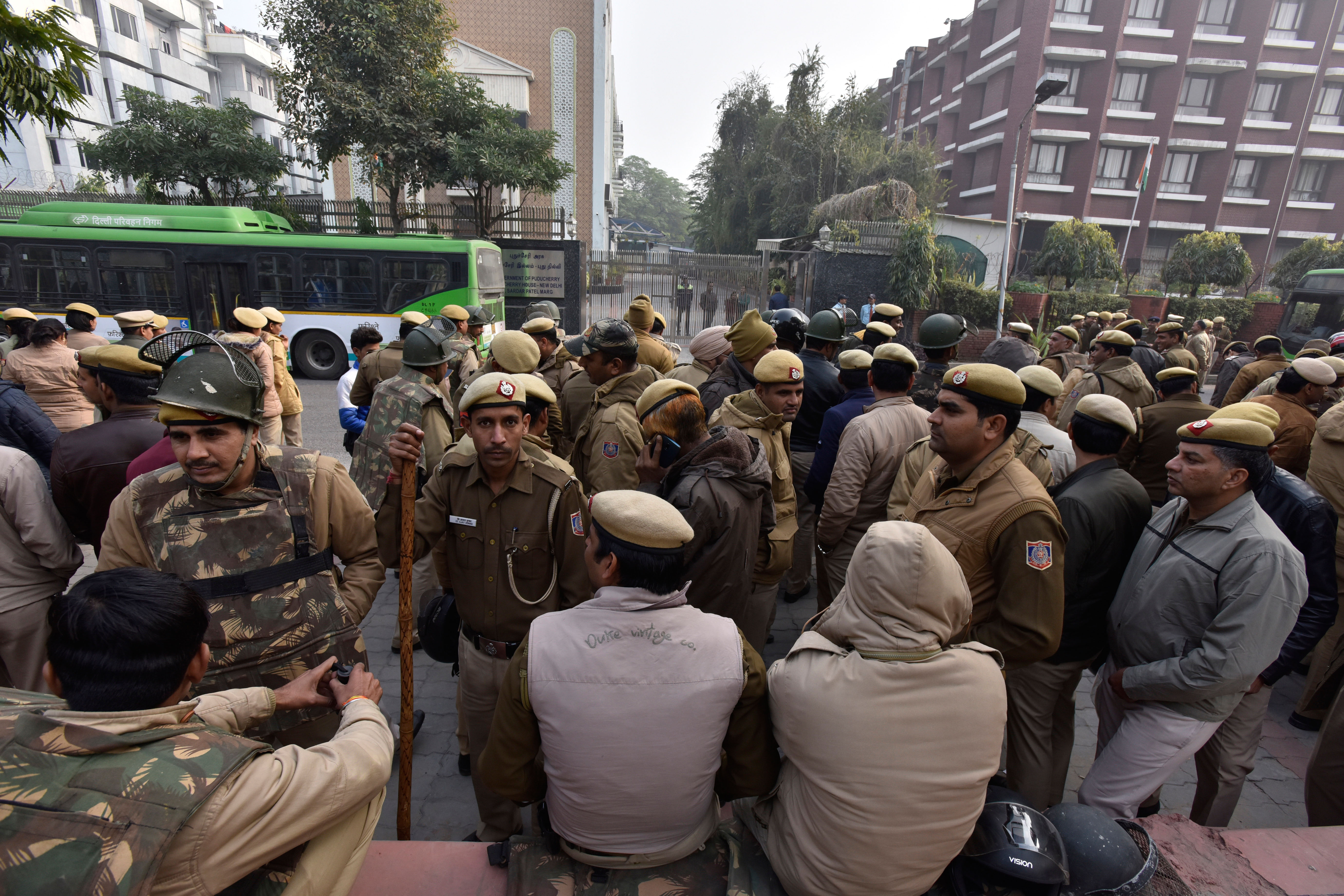The northern Indian state of Uttar Pradesh (UP) announced the formation of a “specialised, well-trained force” with the power to search and arrest people without a warrant. The Special Security Force (SSF) will be launched within the next three months, the UP government said on Sunday, September 13.
UP is India’s most populous state at nearly 200 million people—that’s just a little less than the total population of the African country of Nigeria.
Police reforms advocates and civil rights activists believe that the state government can misuse a force like the SSF to target opponents in a state already notorious for its grave law and order situation.
A report by the National Campaign Against Torture, a platform that documents police brutality in India, found that out of 28 states and eight union territories in the country, UP had the most number of deaths in police custody in 2019. The state also uses extreme torture methods in police custody to extract bribes or confessions.
The UP police are also known for what many activists call the “encounter culture”, or extrajudicial killings. Last year, the Office of High Commissioner for United Nations Human Rights (OHCHR) wrote to the Indian government about at least 59 cases of alleged extrajudicial killings by the UP police since 2017. The National Human Rights Commission of India reported that UP has the second highest cases of fake encounters, as of 2019.

In 2018, then UP Director General of Police, OP Singh, told the media that police encounters are a part of a well chalked out “strategy” to arrest hardened criminals. UP police data shows that 103 “criminals” were killed and 1,859 injured in 5,178 police engagements between 2017 and 2019.
“The SSF just means that whatever used to happen illegally earlier, has now been legalised,” Rajeev Yadav, the general secretary of Rihai Manch, an organisation that works on cases of police violence on marginalised communities in UP, told VICE News.
Mangla Verma, a New Delhi-based human rights lawyer, told VICE News that extraordinary powers to search and arrest without a warrant, in the light of the UP police’s history, is like “giving them blank cheques”. “Had the UP police not have had a certain past, one could have had some faith,” she said. “Such blanket powers are going to be misused.”
The function and design of the SSF was mandated under the UP Special Security Force Act, 2020, passed on August 28.
Some warn that UP is becoming an authoritarian state, which often sees rigorous crackdown on dissidents and journalists. “[The formation of SSF] is another way of relaying an authoritarian message that the UP chief minister (Yogi Adityanath) is sending,” Vikash Narain Rai, former director of the National Police Academy, told VICE News. Rai added that the present state government has always believed that the administration can be run through policing that is high-handed, and uses extreme measures.
Early this year, nationwide protests broke out in opposition to the Citizenship Amendment Act (CAA), a law that is criticised for leaving out Muslims from neighbouring countries from accessing Indian citizenship. In UP, there were reports of police using extreme torture and physical violence on anti-CAA protesters, including minors. The UP government also displayed names, photos and addresses of at least 50 protesters. The move was condemned for putting citizens’ privacy and lives at risk.
The formation of the SSF followed a shootout in 2019, at a courtroom in the UP city of Bijnor. Three assailants opened fire at the Bijnor chief judicial magistrate, killing a murder accused and injuring three others including policemen and a court employee. A similar incident took place in 2015, when an armed juvenile stormed into a UP courtroom shot dead an alleged gangster.
“After that, the government made a commitment that it would raise a specially trained force to provide security at courts,” Binod K Singh, additional general of police (ADG) of the Pradeshik Armed Constabulary (PAC) told VICE News.
PAC is an armed unit of UP police. More than 9,000-personnel strength of the SSF will be recruited from the PAC and other state forces.
This force will be deployed at “strategic and vital installations” such as courts, government establishments and religious institutions. Singh said the deployment would include Ayodhya, a city that is the focus of a religious dispute in India.
Singh added that many of the concerns are “misplaced”. “The people who have formed [the SSF] have something in mind. Whatever the provisions are, they have been well thought out, legally vetted and considered,” he said.
There is also a question of priorities. The Indian police force is among the most understaffed in the world. In that, UP has one of the worst numbers—less than 100 police staff for a 100,000 population.
VN Rai said that the shortfall is not as important as the “orientation of the police”. “If the present police strength is not adequate but its orientation is lopsided, more policemen would mean a bigger burden,” he said.
Activists also questioned the accountability of an outfit such as the SSF. Devika Prasad, programme head of police reforms at human rights watchdog Commonwealth Human Rights Initiative, told VICE News that the vague powers and the need for this force are not justified enough, or made clear. The Act (to form the SSF) states that the force may arrest anyone against whom, among other reasons, there is “reasonable suspicion” of a “cognizable offence”.
“The creation of a sizable new security force should be accompanied by specific and stringent accountability,” said Prasad. “The 2020 Act does not do so. In fact, it gives emphasis to immunity rather than accountability.”
Follow Pallavi Pundir on Twitter.
from VICE US https://ift.tt/35C6KgS
via cheap web hosting
No comments:
Post a Comment